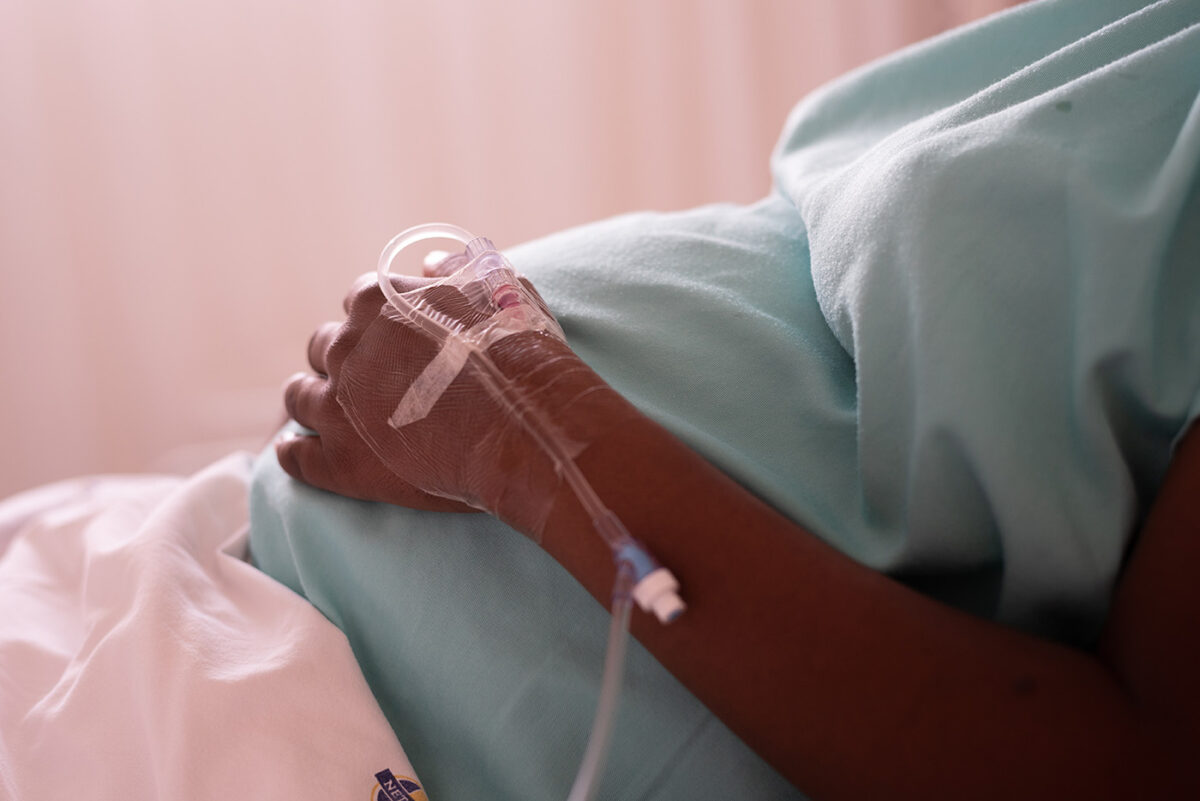
Author
Elizabeth (Izzy) Montgomery, MPA
Policy Analyst
Contact
ACHI Communications
501-526-2244
jlyon@achi.net
State Medicaid agencies will soon be able to enlist in a new 10-year delivery model focused on improving maternal health care for enrollees in Medicaid and the Children’s Health Insurance Program.
The Transforming Maternal Health Model, announced by the Centers for Medicare and Medicaid Services (CMS) Innovation Center today (Dec. 15), will support participating state Medicaid agencies in developing a whole-person approach to pregnancy, childbirth, and postpartum care. The whole-person approach will address physical, mental, and social needs experienced during pregnancy with a goal to improve outcomes and healthcare experiences for mothers and newborns while reducing overall program expenditures.
Three main components of the model are:
- Access to care, infrastructure, and workforce capacity, including:
- Increasing access to birth centers and midwives.
- Increasing access to perinatal community health workers and doulas.
- Enhancing data collection, exchange, and linkage through improvements in electronic health records and health information exchanges.
- Quality improvement and safety, including:
- Implementing “patient safety bundles” or specific protocols that promote the reduction of avoidable procedures, leading to improved outcomes.
- Promoting “birthing-friendly” designation for eligible hospitals and healthcare systems.
- Introducing options to promote shared decision-making between mothers and providers.
- Whole-person care delivery:
- Instituting evidence-based medical and social risk assessment to drive risk-appropriate care.
- Delivering care consistent with individual preferences.
- Routinely screening and following up for perinatal depression, anxiety, tobacco use, and substance abuse during the prenatal and postpartum periods.
- Incorporating home monitoring and telehealth technology for birthing people who have medical conditions like gestational diabetes and hypertension that complicate pregnancies.
- Routinely screening and following up for health-related social needs.
- Establishing reliable referral pathways to and from community-based organizations to address health-related social needs.
- Developing and implementing health equity plans as well as cultural competency technical assistance for providers.
During a three-year pre-implementation period, states will receive targeted technical assistance from federal partners and then proceed to a seven-year implementation period. A notice of funding opportunity will be released in the spring of 2024, with applications due in September 2024.
In 2013, the CMS Innovation Center selected Arkansas as one of only six states to participate in the initial rollout of the State Innovation Models initiative. Through that initiative, the state received $42 million in federal funds to support the implementation of the Arkansas Health Care Payment Improvement Initiative, a multi-payer, statewide effort that improved quality of care and fundamentally transformed how primary and specialty care are paid for in Arkansas.
The announcement presents a significant opportunity for Arkansas, which has some of the worst maternal and infant health outcomes in the country. The state has the highest maternal mortality rate in the nation, with 43.5 maternal deaths per 100,000 live births from 2018 through 2022 (representing 63 maternal deaths) and the third-highest infant mortality rate in the nation, with 7.67 infant deaths per 1,000 live births in 2022 (representing 272 infant deaths).
The Transforming Maternal Health Model aligns with many of the policy options we included in our Birthing Journey infographic, particularly the focus on opportunities to reduce avoidable procedures like first-birth C-section deliveries, which Arkansans experience at higher rates than the national average and vary considerably in prevalence depending on the mother’s county of residence.






